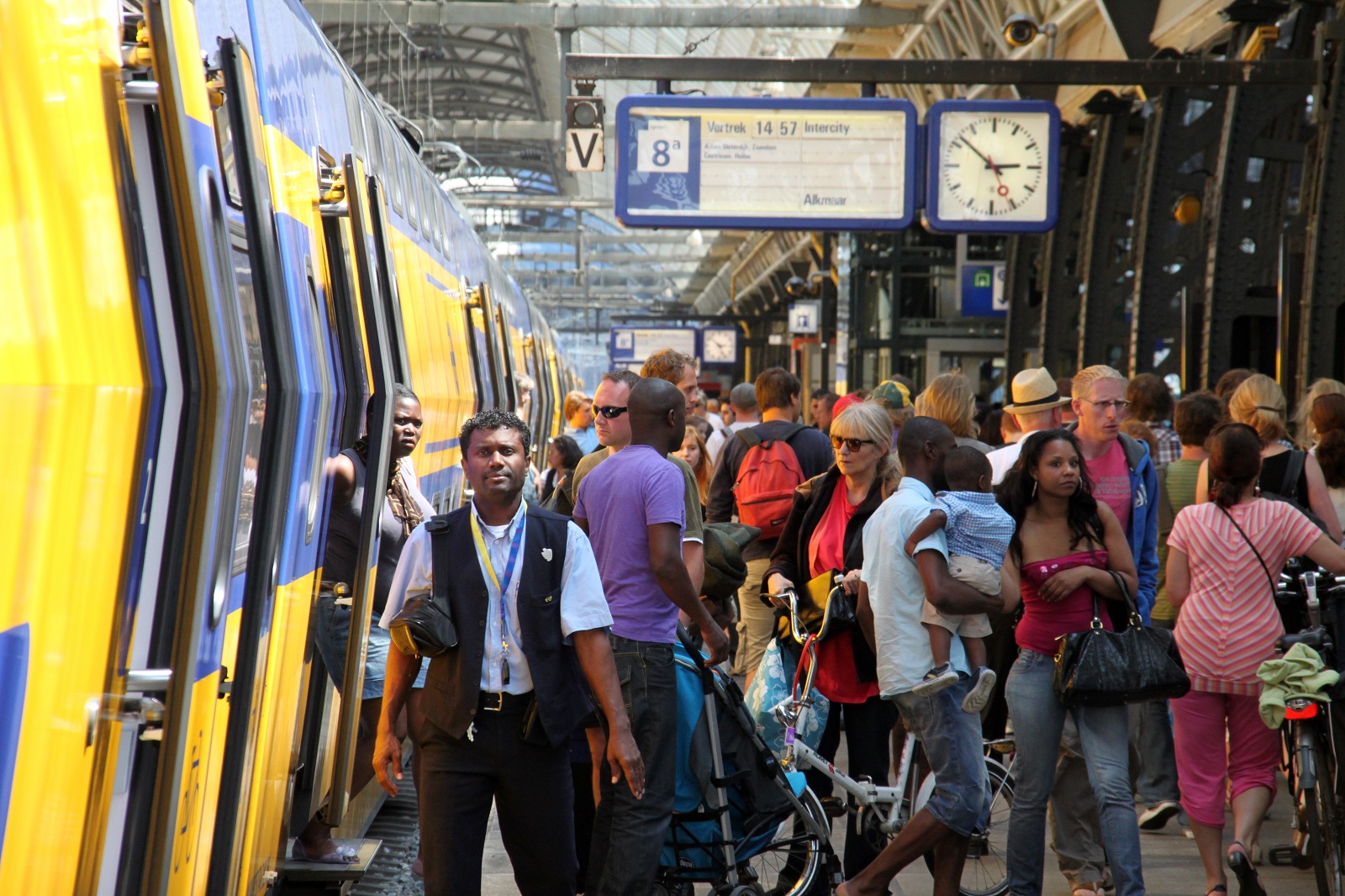Students traveling by rail in September should be prepared for crowded trains. NS Dutch Railways expect to transport a record of 36.7 million passengers next month.
Trains between The Hague - Leiden, Rotterdam - Amsterdam and The Hague - Eindhoven will be longer, offering 200 additional seats. (Photo: Wikimedia Commons)
September is always the busiest month of the year for passenger rail traffic, with commuters returning from their summer holidays and students resuming their studies. Last year, NS transported 35 million passengers in September, and that number is expected to rise to a new record of 36.7 million in 2019. Trains will be especially crowded during the morning ‘hyper peak’ between 07.30 and 08.30.
The worst crowding will be on the lines between Haarlem – Amsterdam Sloterdijk, Utrecht Central – Amsterdam Bijlmer, The Hague Central – Leiden Central, Ede-Wageningen – Utrecht Central and Amersfoort – Utrecht Central.
Sardines
The railway company has taken measures to prevent passengers from being packed into trains like tinned sardines. Trains between The Hague – Leiden, Rotterdam – Amsterdam and The Hague – Eindhoven will be longer, offering 200 additional seats. NS has asked ProRail, the railway infrastructure organisation, to extend the platforms at nine stations to accommodate longer trains. NS has also requested additional rail capacity so that it can increase the number of trains starting next year. By 2021, NS will have added 79 new Intercity trains to its routes, offering 25,000 additional seats.
Schedule adjustments
NS cannot solve the problem on its own, however. The railway company has heaped praise on educational institutions in the town of Nijmegen for adjusting their morning schedules. Starting in September last year, lectures at Radboud University began at 08.30 instead of 08.45, while the University of Applied Sciences of Arnhem and Nijmegen began at 09.00, which is 15 minutes later than before. The effect was remarkable: trains are now 22% less crowded at 08.15, with a 10% drop in the number of bus passengers.
TU Delft
Earlier this year, TU Delft reacted reluctantly to adjust the lecture times. Because, as member Rob Mudde asked, what does it mean for the traffic load in the surrounding neighborhoods and what does it do with the commuter traffic of employees?
A tall order
The government has long pressed educational institutions to make adjustments to their schedules. When the previous cabinet introduced the student loan system, the government argued that it could save 200 million euros annually on public transport for students by reducing the number of trains and busses needed to transport all passengers simultaneously during peak hours. That money would then go to benefit higher education. Critics warned from the outset that it would be nearly impossible to get students to travel at off-peak times. Even the minister of education, Ingrid van Engelshoven, admitted that it was a tall order.
HOP, Melanie Zierse
Translation: Taalcentrum-VU
Do you have a question or comment about this article?
redactie@hogeronderwijspersbureau.nl


Comments are closed.